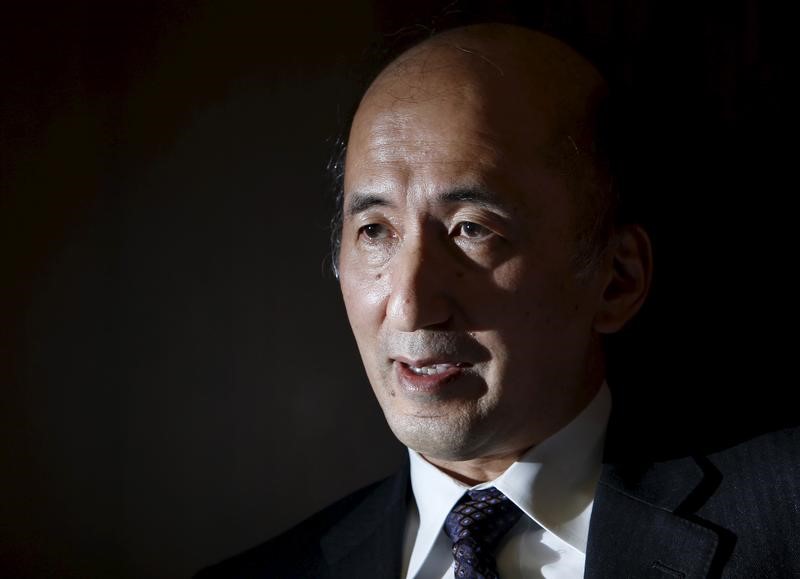By Leika Kihara
KOCHI, Japan (Reuters) - Bank of Japan Deputy Governor Hiroshi Nakaso said Japan's economy still needs massive monetary support given overseas uncertainties and stubbornly weak price growth, shrugging off market speculation it may raise its bond yield target this year.
He also said Group of 20 nations recognize that Japan abides by a joint agreement to refrain from using monetary policy to manipulate exchange-rates, arguing against criticism from U.S. President Donald Trump that Japan was using ultra-easy policy to weaken the yen and give its exports an unfair trade advantage.
"The BOJ guides monetary policy solely for the purpose of achieving its inflation target at the earliest date possible. It does not target exchange rates," Nakaso told reporters on Thursday, when asked about Trump's accusation.
Nakaso said that while Japan's economy was recovering moderately, risks to the outlook were skewed to the downside due to uncertainty over U.S. policies and weak price growth at home.
"Some market players, taking into account recent rises in overseas interest rates, argue that the BOJ might consider raising its long-term rate target," Nakaso said in a speech to business leaders in Kochi, western Japan.
"But the momentum toward achieving our price target, while sustained, isn't sufficient. There's still a long way to go to achieve our target," he said. "I believe it's most important that the BOJ persistently pursue powerful monetary easing."
EASING BIAS INTACT
Doubts over the BOJ's resolve to keep Japanese government bond yields from tracking global long-term interest rates drove the 10-year JGB yield to a one-year high last week, forcing the bank to conduct a special bond buying operation.
The rise in long-term rates challenged the BOJ's commitment to its "yield curve control" scheme introduced in September, under which it guides the benchmark yield around zero percent in a bid to accelerate inflation to its 2 percent target.
Nakaso said the conditions for raising the BOJ's yield targets would be for long-term interest rates to rise in sympathy with an improvement in the economy.
He stressed, however, that the BOJ's priority now was to achieve its inflation target through aggressive monetary easing.
"The BOJ is ready to buy sufficient and necessary amounts of government bonds to meet its yield targets," Nakaso said, adding the current shape of Japan's bond yield curve was consistent with what the BOJ deemed appropriate.
The BOJ revamped its policy framework in September, shifting its target to interest rates from the pace of money printing after three years of huge asset purchases failed to accelerate inflation to target.
While the economy is showing signs of life, core consumer prices in December fell 0.2 percent from a year earlier, marking the 10th straight month of declines and underscoring the difficulty of hitting the BOJ's price goal.
Adding to the gloom, Japanese policymakers were shocked by Trump's accusation that Tokyo was using "money supply" for currency devaluation - a sign his criticism could distract the BOJ from its years-long efforts to revitalize the economy.
Currency policy may be discussed when Japanese Prime Minister Shinzo Abe visits the United States for a bilateral meeting with Trump later this week.
But Japan will push back firmly on any attempts by Trump's administration to meddle with its independence on setting currency and monetary policies, say sources familiar with the deliberations in Tokyo. [
(Editing Jacqueline Wong & Shri Navaratnam)
